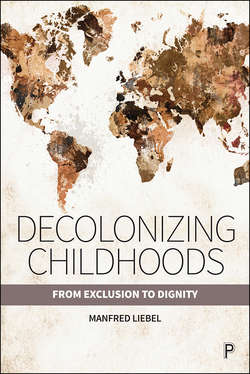Decolonizing Childhoods

Реклама. ООО «ЛитРес», ИНН: 7719571260.
Оглавление
Liebel Manfred. Decolonizing Childhoods
Отрывок из книги
DECOLONIZING CHILDHOODS
From Exclusion to Dignity
.....
In the UNICEF reports, the reasons why high poverty, air pollution and child mortality are mainly affecting the people of the Global South are not or only vaguely named. It is clearer in other UN reports, in which not only poverty itself is depicted, but also the increase in worldwide material inequality over longer periods of time. For example, a United Nations Human Development Report (UNDP, 1999: 3) shows that:
… the income gap between the fifth of the world’s people living in the richest countries and the fifth in the poorest was 74 to 1 in 1997, up from 60 to 1 in 1990 and 30 to 1 in 1960. In the nineteenth century, too, inequality grew rapidly during the last three decades, in an era of rapid global integration: the income gap between the top and bottom countries increased from 3 to 1 in 1820 to 7 to 1 in 1870 and 11 to 1 in 1913. By the late 1990s the fifth of the world’s people living in the highest-income countries had: 86% of world GDP – the bottom fifth just 1%.
.....